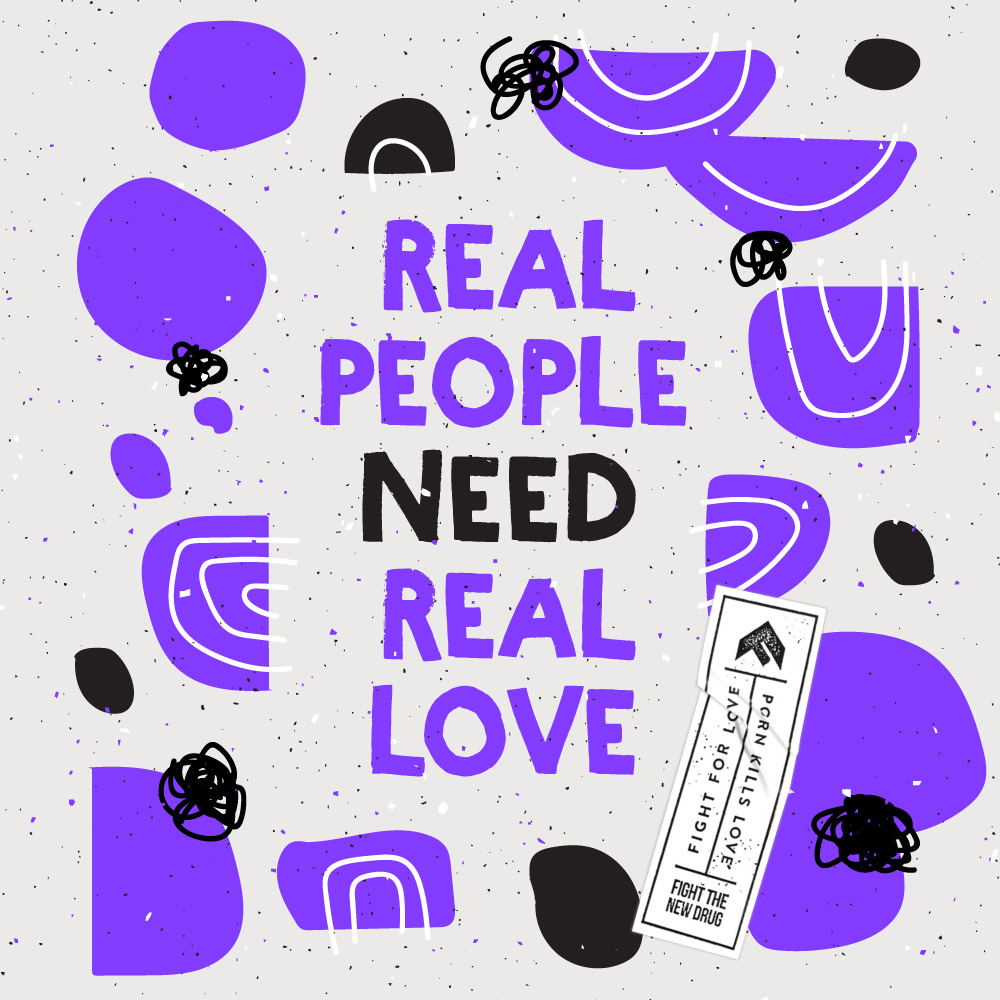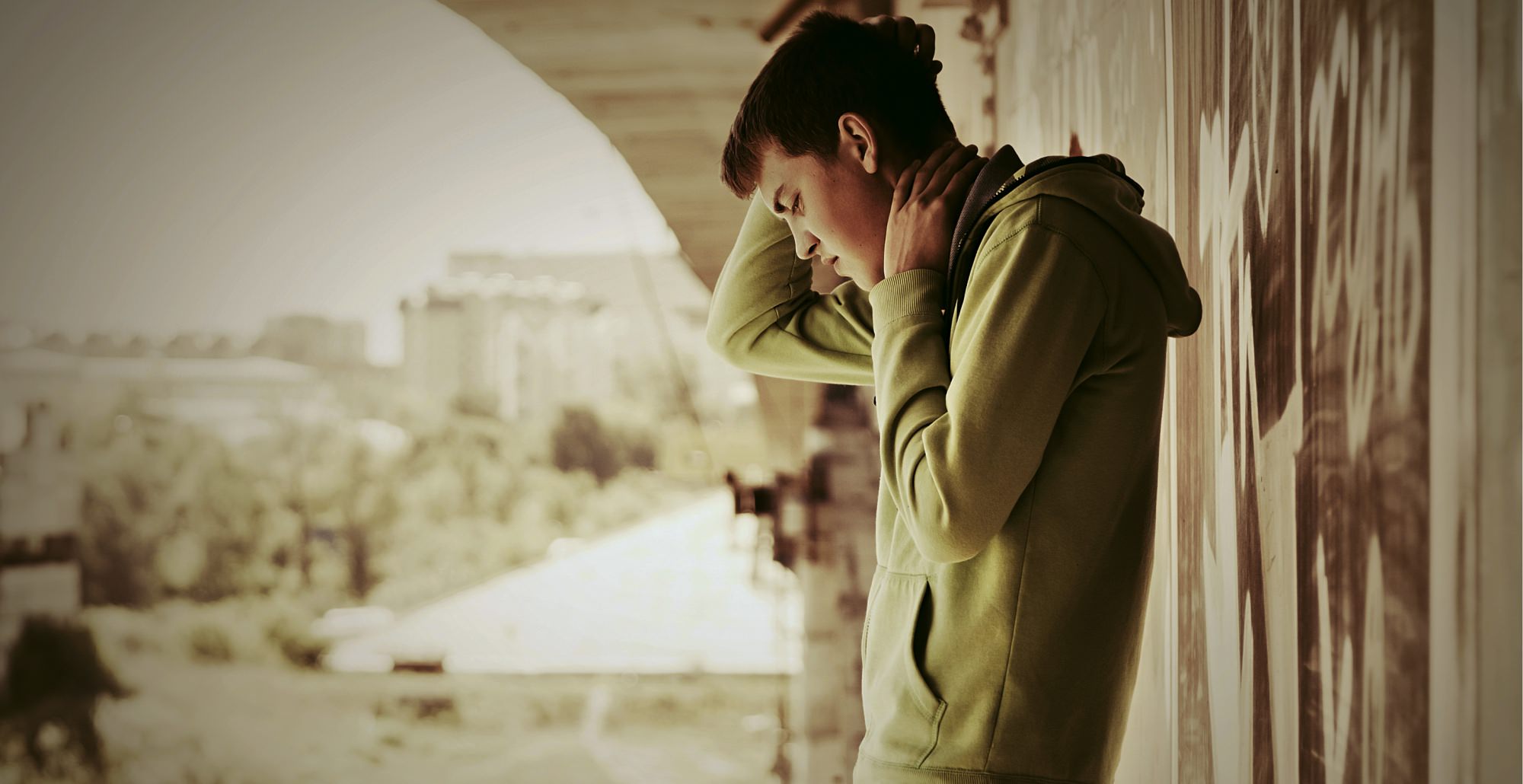Many people contact Fight the New Drug to share their personal stories about how porn has affected their life or the life of a loved one. We consider these personal accounts very valuable because, while the science and research is powerful within its own right, personal accounts from real people seem to really hit home about the damage that pornography does to real lives.
We received this story from a Fighter who turned to porn after being sexually abused as a child. He found that pornography wasn't a healthy coping mechanism in the long run, and it actually harmed more than it helped.
Hi guys,
Just first off, I want to thank you for the work you’re doing to raise awareness on porn’s harm, and for starting to remove the stigma behind porn addiction. I figured I’d share my story and hopefully it’ll help someone else in the future.
First off, my parents got divorced when I was 4. Then when I was about 6, I was sexually abused by a baby sitter. From that moment on, I was wounded emotionally and mentally. The people that I wanted love and acceptance from had hurt, abused, and abandoned me.
Related: True Story: My Babysitter Learned From Porn How To Molest Me
Probably around age 11, I saw porn on the internet for the first time. In porn, I found a coping mechanism for my pain. When I was abused, I felt completely powerless. Porn was something that I could control, it was safe. I was terrified of letting anyone get too close to me, and I always felt like there was a wall between me and everyone else on earth. I desperately wanted intimacy, but I was afraid of getting hurt again.
Fast forward 10+ years, and my relationships have suffered ever since. In my last 3 relationships, porn was big part of the reason for the break up. I thought it would be this way forever. I thought I could never find freedom from the vice grip it had on me, now. However, a few weeks ago, me and my girlfriend of 8 months broke up, and part of the reason was porn. She said she couldn’t handle me choosing porn over her. I’d done it in the past before…I’d just give up, collapse in on myself, and settle for the counterfeit intimacy of porn.
Related: I Watched Rape Porn To Cope With Being Sexually Abused
This time was different, though.
I love her, and I want real and true intimacy with her. I refuse to choose porn over her. She helped me discover the medicine I’d been using to heal my pain is really poison. See, after the abuse, I felt isolated, worthless, and powerless. Porn only exacerbated these feelings, and made them deeper and worse.
I want other victims of abuse to realize that they can still find the love and acceptance they desire. They can heal, but porn will never fill that hole in their heart. Thanks for listening to my story, and thanks again for all you guys do.
Keep fighting,
–P.
Why This Matters
“Any time [a person] spends much time with the usual pornography usage cycle, it can’t help but be a depressing, demeaning, self-loathing kind of experience,” said Dr. Gary Brooks, a psychologist who has worked with porn addicts for the last 30 years. [1] And that doesn’t sound like something that can help a survivor of sexual abuse recover, does it?
Related: How Porn Damages Your Sex Life
Studies have found that when people engage in an ongoing pattern of “self-concealment,”—which is when they do things they’re not proud of and keep them a secret—it not only hurts their relationships and leaves them feeling lonely, but also makes them more vulnerable to serious psychological issues. [2] For both male and female porn consumers, their habit is often accompanied by problems with anxiety, body-image issues, poor self-image, relationship problems, insecurity, and depression. [3]
And for someone, like this Fighter, who has suffered through emotional trauma, none of that sounds healthy for the viewer. We definitely don’t think porn can help more than it can hurt, which is why we fight for real love and healthy relationships. Don’t take fake, because watching porn isn’t worth it.

Get Involved
Show support for this brave Fighter’s story. SHARE this article to raise awareness on the harmful effects of pornography and its inseparable links to sexual abuse and exploitation.
Spark Conversations
This movement is all about changing the conversation about pornography. When you rep a tee, you can spark meaningful conversation on porn’s harms and inspire lasting change in individuals’ lives, and our world. Are you in? Check out all our styles in our online store, or click below to shop:
Citations
[1] Interview With Dr. Gary Brooks, Oct. 23, 2013.
[2] Laird, R. D., Marrero, M. D., Melching, J. A., And Kuhn, E. S. (2013). Information Management Strategies In Early Adolescence: Developmental Change In Use And Transactional Associations With Psychological Adjustment. Developmental Psychology, 49(5), 928–937. Doi:10.1037/A0028845; Luoma, J. B., Et. Al. (2013). Self-Stigma In Substance Abuse: Development Of A New Measure. Journal Of Psychopathology And Behavioral Assessment, 35, 223–234. Doi:10.1007/S10862-012-9323-4; Rotenberg, K. J., Bharathi, C., Davies, H., And Finch, T. (2013). Bulimic Symptoms And The Social Withdrawal Syndrome. Eating Behaviors, 14, 281–284. Doi:10.1016/J.Eatbeh.2013.05.003; Frijns, T. And Finkenauer, C. (2009). Longitudinal Associations Between Keeping A Secret And Psychosocial Adjustment In Adolescence. International Journal Of Behavioral Development, 33(2), 145–154. Doi:10.1177/0165025408098020
[3] Flisher, C. (2010). Getting Plugged In: An Overview Of Internet Addiction. Journal Of Paediatrics And Child Health 46: 557–559. Doi:10.1111/J.1440-1754.2010.01879.X; Layden, M. A. (2010). Pornography And Violence: A New Look At The Research. In Stoner, J., & Hughes, D. (Eds.) The Social Costs Of Pornography: A Collection Of Papers (Pp. 57–68). Princeton, NJ: Witherspoon Institute; Kafka, M. P. (2000). The Paraphilia-Related Disorders: Nonparaphilic Hypersexuality And Sexual Compulsivity/Addiction. In Leiblum, S. R., & Rosen, R. C. (Eds.) Principles And Practice Of Sex Therapy, 3rd Ed. (Pp. 471–503). New York: Guilford Press.
Your Support Matters Now More Than Ever
Most kids today are exposed to porn by the age of 12. By the time they’re teenagers, 75% of boys and 70% of girls have already viewed itRobb, M.B., & Mann, S. (2023). Teens and pornography. San Francisco, CA: Common Sense.Copy —often before they’ve had a single healthy conversation about it.
Even more concerning: over half of boys and nearly 40% of girls believe porn is a realistic depiction of sexMartellozzo, E., Monaghan, A., Adler, J. R., Davidson, J., Leyva, R., & Horvath, M. A. H. (2016). “I wasn’t sure it was normal to watch it”: A quantitative and qualitative examination of the impact of online pornography on the values, attitudes, beliefs and behaviours of children and young people. Middlesex University, NSPCC, & Office of the Children’s Commissioner.Copy . And among teens who have seen porn, more than 79% of teens use it to learn how to have sexRobb, M.B., & Mann, S. (2023). Teens and pornography. San Francisco, CA: Common Sense.Copy . That means millions of young people are getting sex ed from violent, degrading content, which becomes their baseline understanding of intimacy. Out of the most popular porn, 33%-88% of videos contain physical aggression and nonconsensual violence-related themesFritz, N., Malic, V., Paul, B., & Zhou, Y. (2020). A descriptive analysis of the types, targets, and relative frequency of aggression in mainstream pornography. Archives of Sexual Behavior, 49(8), 3041-3053. doi:10.1007/s10508-020-01773-0Copy Bridges et al., 2010, “Aggression and Sexual Behavior in Best-Selling Pornography Videos: A Content Analysis,” Violence Against Women.Copy .
From increasing rates of loneliness, depression, and self-doubt, to distorted views of sex, reduced relationship satisfaction, and riskier sexual behavior among teens, porn is impacting individuals, relationships, and society worldwideFight the New Drug. (2024, May). Get the Facts (Series of web articles). Fight the New Drug.Copy .
This is why Fight the New Drug exists—but we can’t do it without you.
Your donation directly fuels the creation of new educational resources, including our awareness-raising videos, podcasts, research-driven articles, engaging school presentations, and digital tools that reach youth where they are: online and in school. It equips individuals, parents, educators, and youth with trustworthy resources to start the conversation.
Will you join us? We’re grateful for whatever you can give—but a recurring donation makes the biggest difference. Every dollar directly supports our vital work, and every individual we reach decreases sexual exploitation. Let’s fight for real love:


